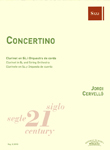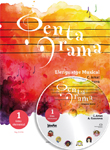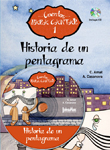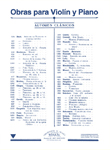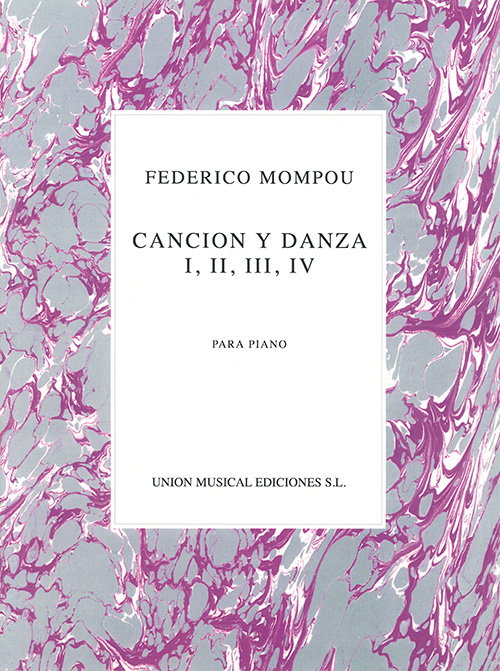WORKS
- Genre
-
Musical education
- Choir
- Counterpoint
- Dictation
- Direction
- Exam study manuals
- General music pedagogy
- Harmony
- Hearing
- Illustrations / Posters
- Improvisation / Sight reading
- Instrument methods
- Instrument pedagogy
- Instrumental study repertoire
- Instrumentation and orquestration
- Musical language
- Solfège
- Templates
- Theory and analysis
-
Incidental music
-
Lined paper
-
Flamenco
-
Religious music
-
Classical / contemporary
-
Modern music
-
Folk music / traditional
-
Musicology
-
Divulgation
-
Games and hobbies
-
Music therapy
-
Children / Youth
-
- Instruments
- Ensemble
- Difficulty level
- Period
- Genre
SOPORTE
Search
Find here: books, scores, composers, digital pieces, cd's
Best-selling works
Our classics
Newsletter
I wish to be informed of the news about your music
We have received your e-mail correctly
Multimedia
Canción y danza I, II, III, IV
Piano
MOMPOU, FredericMOMPOU, FredericMOMPOU, FredericReg.: UMP24326
18,00 €
P.V.P. (VAT included 4%)
Add to cart
- Ensemble: Solo.
- Genres: Musical education: Instrumental study repertoire.
- Language: Español / Castellano
- Product format: Partitura
- Difficulty level: Elementary-intemediate
- Period: 2nd half S. XX - XXI
- Publishing house: UNION MUSICAL EDICIONES S.L.
- No. of pages: 28
- Measure: 30,50 x 22,70 cm
- ISBN: 978-0-7119-7730-3
- Available in digital: No
- Available for rent: No
Mompou was born in Barcelona to the lawyer Frederic Mompou and his wife Josefina Dencausse, who was of French origin. His brother Josep Mompou (1888–1968) became a painter. His sketch of a simple farmhouse appeared on the covers of all of Frederic's published music.
Mompou studied piano under Pedro Serra at the Conservatori Superior de Música del Liceu before going to Paris, to study at the Conservatoire de Paris, which was headed by Gabriel Fauré. Mompou had heard Fauré perform in Barcelona when he was nine years old, and his music and performing style had made a powerful and lasting impression on him. He had a letter of introduction to Fauré from Enrique Granados, but it never reached its intended recipient. He entered the Conservatoire (with another Spaniard, José Iturbi), but studied with Isidor Philipp, head of the piano department. He also took private piano lessons with Ferdinand Motte-Lacroix and harmony and composition lessons with Marcel Samuel-Rousseau. His extreme shyness, introspection and self-effacement meant that he could not pursue a solo career, but chose to devote himself to composition instead. In 1917 he returned to Barcelona, fleeing the war. His first published work, Cants magics, appeared in 1920, mainly as a result of the advocacy of his friend Agustin Quintas.


